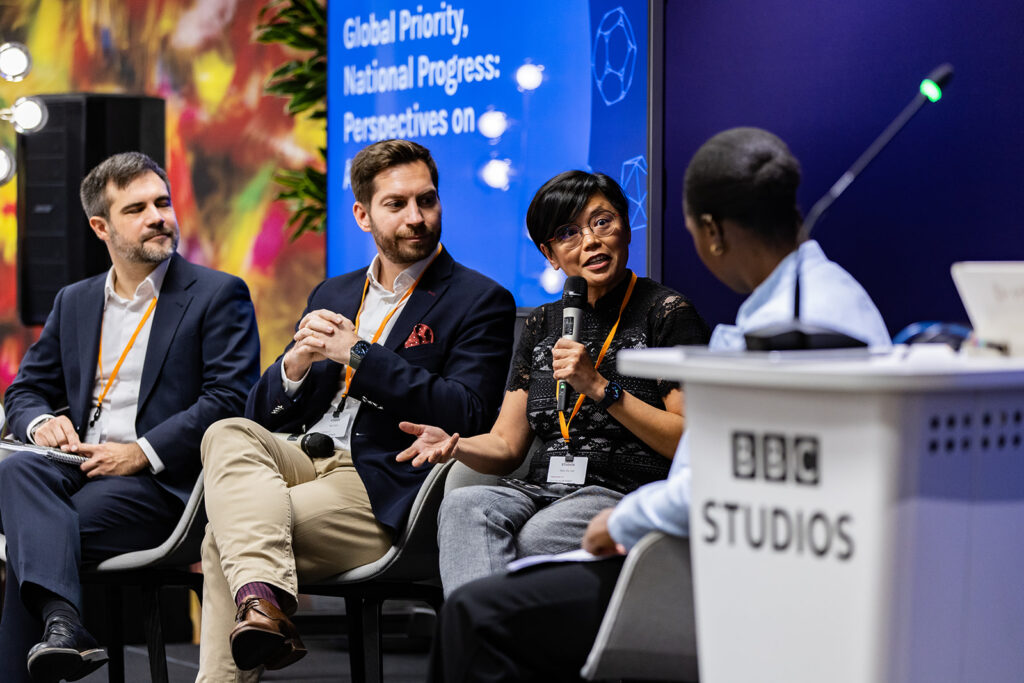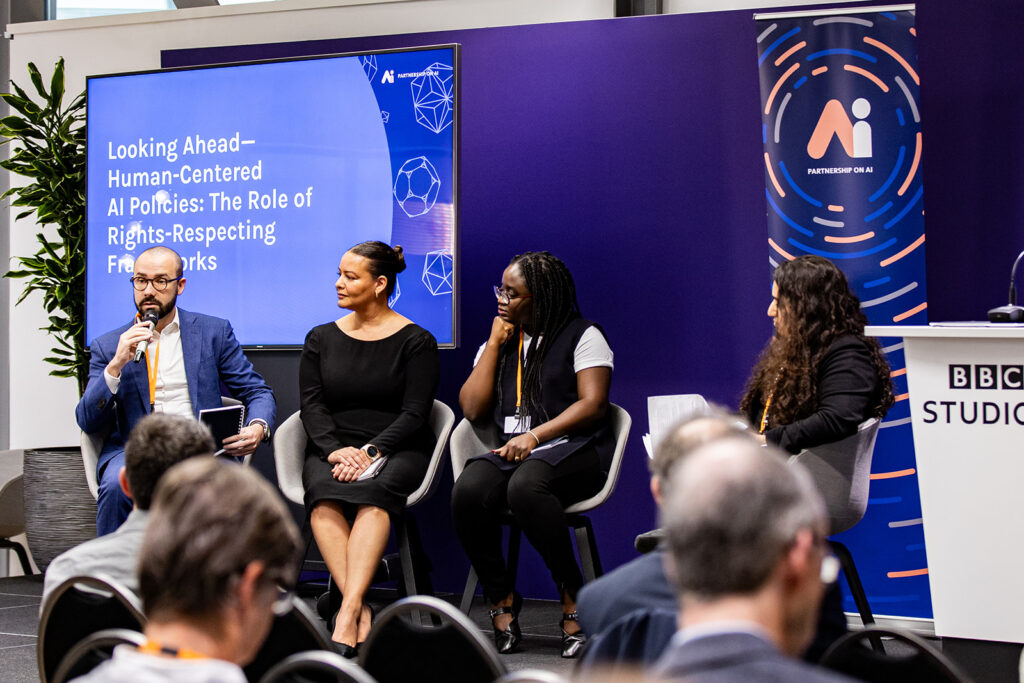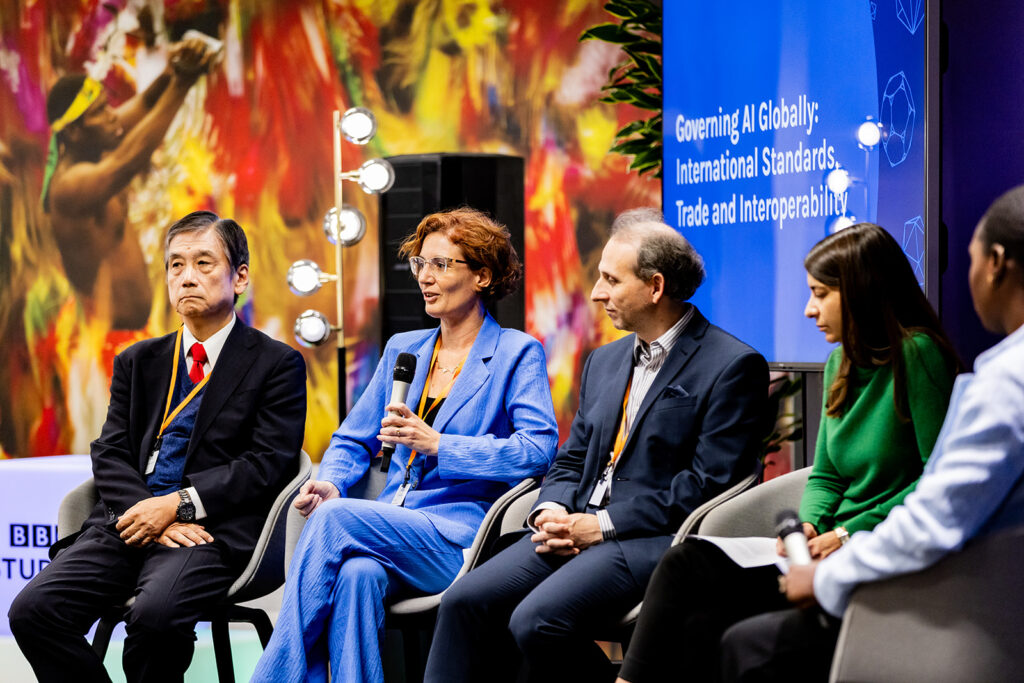This week Partnership on AI (PAI) had the pleasure of convening a Policy Forum with leaders from around the world, who have been building the foundation of good AI governance. After an engaging two days of panel discussions, fireside chats and lightning talks, it is clear that our approach must be an inclusive effort where AI development benefits all and protects them from potential harms. Given how much work there is to be done, this collective action cannot wait. Fortunately, we heard from many forum participants, we are not starting from scratch.

Wan Lee Sie, Director for Data-Driven Tech at Singapore’s Infocomm Media Development Authority, speaks at the panel “Global Priority, National Progress: Perspectives on AI Policy”
Hosted at BBC Studios in London, PAI’s Policy Forum included representatives from industry, civil society, academia, philanthropy, and government. Together, we came to discuss how global policy can best promote AI safety for people and society. The event was held as part of the AI Fringe, a series of events around the UK’s upcoming AI Safety Summit. Throughout the event, I was reminded of the unique ways that multistakeholder collaboration can spark new ways of thinking, acting, and connecting. Next week, I will take these insights with me when I attend the UK AI Safety Summit.
Here are some of the key themes that surfaced during our Policy Forum’s invigorating conversations. Repeatedly, we heard about the need for engagement with diverse voices when creating AI policy; the vital task of deepening public understanding about AI and its impacts to advance accountability; and the importance of knowledge-sharing to understand AI capabilities and risks. PAI’s Guidance for Safe Foundation Model Deployment, launched this week, is an example of a participatory process with representatives from more than 40 institutions from multiple sectors working collectively to articulate the landscape of AI risks and how to address them. Knowledge-sharing across disciplines and sectors will be essential as we seek to identify both existing and emergent risks related to AI technology.

Bruno Bioni, Founder and Director of Data Privacy Brasil, speaks at the panel “Looking Ahead – Human-Centered AI Policies: The Role of Rights Respecting Frameworks”
It is important, however, that institutions beyond PAI draw from these deep wells of expertise. Several attendees at the Policy Forum recognized the need for policymakers to hear from a diverse set of stakeholders and expressed eagerness to contribute their voices. In particular, civil society and international perspectives are needed to paint the full picture of what we know about AI and its impacts.
Additionally, given that AI affects the lives of people differently, within communities, countries and across the world, it is essential that citizens and their governments are able to trust how it is developed and used. Policy Forum participants observed that a well-informed public with clear oversight of AI’s trajectory will play a critical role in defining what transparency and accountability means and contribute to the debate of what is needed in practice. The key to public trust will be public understanding.

Aurelie Jacquet, Committee Chair of AI Standards Australia, speaks at the panel “Governing AI Globally: International Standards, Trade and Interoperability”
“It is important to include a wide range of voices from countries, governments, civil society, and the public to have the right AI policy approach,” as stated by our keynote speaker, Lizzie Greenhalgh, UK Government Dept. of Science, Innovation, and Technology. PAI is committed to including the voices of others and recently formed a Policy Steering Committee to engage in constructive debate about AI governance.
I am incredibly grateful to our Partners, Policy Forum attendees, and members of the broader AI community who have contributed to the important work ahead of us.
Rebecca Finlay, CEO



![$hero_image['alt']](https://partnershiponai.org/wp-content/uploads/2023/10/London-Event-Photographer-38_websize.jpg)